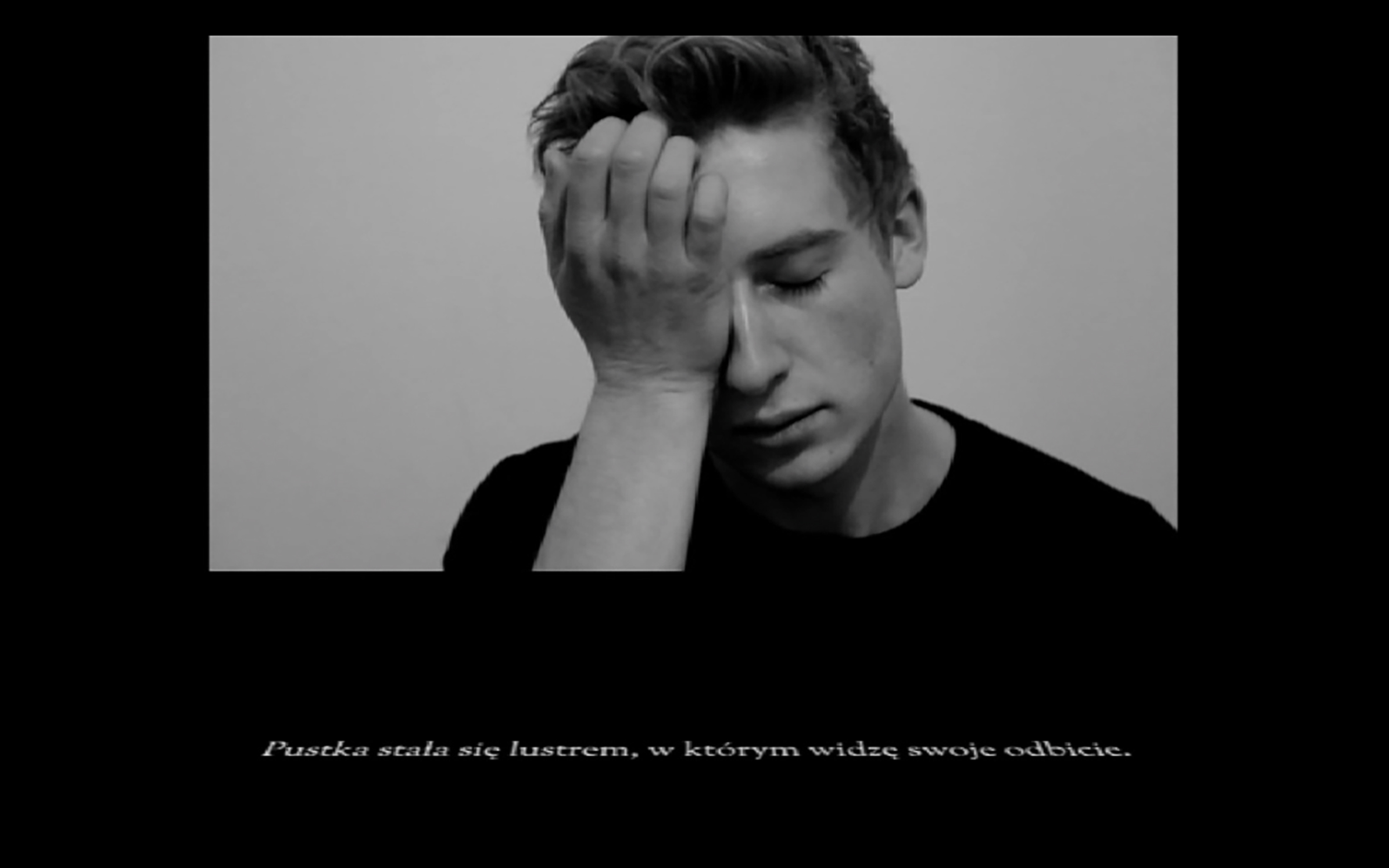Graduate of the Faculty of Intermedia of the Academy of Fine Arts in Kraków, where he received his diploma in 2015 from the Performance Art Studio. Dobrucki is presently a Master’s student in the Faculty of Painting and New Media at the Academy of Art in Szczecin. His interests revolve around film, theatre, and the wild aspects of culture, as well as this culture’s motivations. Select activities and group shows include “KINO LAB / Intermedia.mov,” CCA Ujazdowski Castle, Warsaw; “THE DARK MATTER OF THE ART WORLD #1,” Klub Bomba, Kraków; INTERMÉDE FESTIVAL, Szpitalna 1, Kraków; and “Conversations with Plants,” Księgarnia / Wystawa, Kraków. The artist collaborated with Michał Borczuch on his spectacle “Paradiso,” Łaźnia Nowa Theatre, Nowa Huta and the short theatrical form “Mikro Teatr / Assholes”, Komuna Warszawa.
Michał Dobrucki, Confession, 2015, performance footage, 9’50”
“Confession” does not feature any filmed images. The soundtrack consists of dialogue, accompanied by the sounds of a holy mass heard in the background. It documents an act of atonement: a real life confession made by the artist—a confidential conversation that has been recorded and presented in public. Inside the confessional Dobrucki talks about his life and doubts using quotes from Ingmar Bergman’s film “The Seventh Seal.”
In so doing, the artist evokes fundamental existential issues. Yet the staged situation and the performed role gain authenticity as a dialogue owing to the approach of the priest, who ventures to answer the doubts and wants to share the burden of indecision. It is does not matter if he is aware of his role in the artist’s work.
Dobrucki’s interests focus on the questions raised by the ritual of washing away sins, a procedure that releases the individual from the committed moral wrongs and restores the ties with the religious community. The ritual requires contrition and shame for the committed wrongs. Dobrucki’s artistic activity, which feeds on the sacrament of penance, is an attempt to recreate this rite of passage.
His work can be described as a profanation in its original sense—relocating the sacrament from the sacred sphere to the sphere of use with a view to understanding its mystery and transformative force. How is penance for sins chosen? What is the gravity of this act? What is the power of forgiveness? How can it influence the community? If a performance adopts the form of a confession; Does it wash away the sins?

